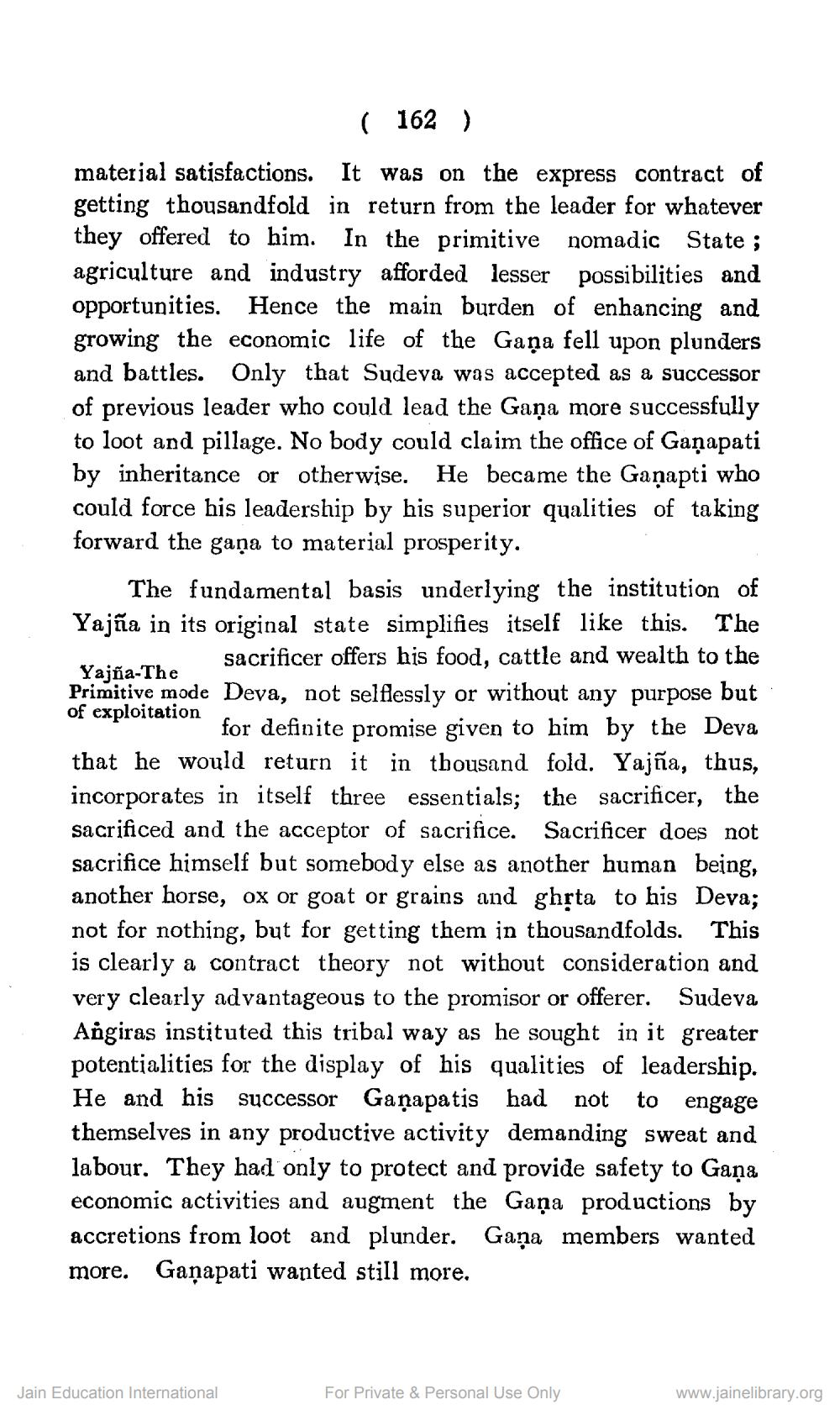________________
( 162 ) material satisfactions. It was on the express contract of getting thousandfold in return from the leader for whatever they offered to him. In the primitive nomadic State ; agriculture and industry afforded lesser possibilities and opportunities. Hence the main burden of enhancing and growing the economic life of the Gaņa fell upon plunders and battles. Only that Sudeva was accepted as a successor of previous leader who could lead the Gaņa more successfully to loot and pillage. No body could claim the office of Ganapati by inheritance or otherwise. He became the Gaņapti who could force his leadership by his superior qualities of taking forward the gaņa to material prosperity.
The fundamental basis underlying the institution of Yajña in its original state simplifies itself like this. The
sacrificer offers his food, cattle and wealth to the Yajña-The Primitive mode Deva, not selflessly or without any purpose but of exploitation
for definite promise given to him by the Deva that he would return it in thousand fold. Yajña, thus, incorporates in itself three essentials; the sacrificer, the sacrificed and the acceptor of sacrifice. Sacrificer does not sacrifice himself but somebody else as another human being, another horse, ox or goat or grains and ghrta to his Deva; not for nothing, but for getting them in thousandfolds. This is clearly a contract theory not without consideration and very clearly advantageous to the promisor or offerer. Sudeva Angiras instituted this tribal way as he sought in it greater potentialities for the display of his qualities of leadership. He and his successor Ganapatis had not to engage themselves in any productive activity demanding sweat and labour. They had only to protect and provide safety to Gaņa economic activities and augment the Gaņa productions by accretions from loot and plunder. Gaņa members wanted more. Ganapati wanted still more.
Jain Education International
For Private & Personal Use Only
www.jainelibrary.org




